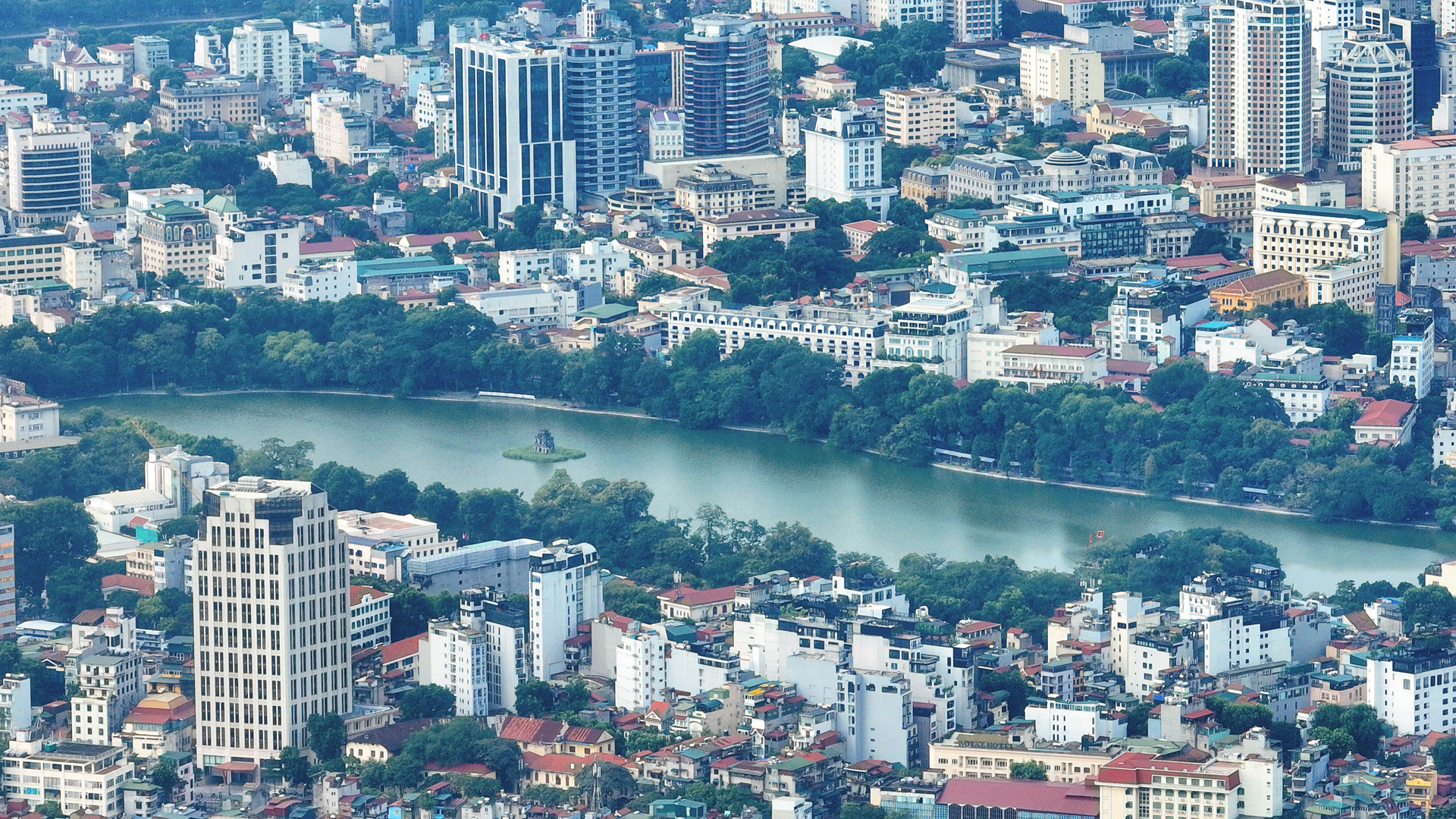
The Fraser Institute of Canada released its annual report on the World Economic Freedom Index on October 16, 2024. This marks the third consecutive year that Vietnam has seen an increase in both its score and ranking.
Vietnam's score improved from 6.17 in 2019 to 6.23 in 2022, while its ranking moved up from 123rd out of 165 countries to 99th within the same period. This is the first time Vietnam has been listed among the top 100 countries and territories.
The improvement in Vietnam’s score and ranking from 2020 to 2022 occurred during a time when the world was grappling with the COVID-19 pandemic. As many countries implemented measures that significantly impacted economic freedom, the global average economic freedom score fell from 6.8 in 2019 to 6.56 in 2022.
Gains reflect government reforms
Vietnam’s rising scores and rankings in the World Economic Freedom Index highlight the government's timely, market-friendly economic policies to support recovery during the COVID-19 period.
However, some sub-indexes show areas of concern. Government size, in particular, saw a decline in both score and ranking, with the score dropping from 6.51 in 2021 to 6.28 in 2022, causing a fall in ranking from 87th to 106th. The main reasons include high marginal tax rates and extensive state ownership of assets, which have not improved relative to other countries.
The Legal System and Property Rights sub-index remained unchanged at 5.15, resulting in a drop in ranking from 77th to 78th. Conversely, the Sound Money sub-index showed a slight increase from 6.95 to 6.98, boosting Vietnam’s ranking from 116th to 105th. Improvements in monetary control and inflation management contributed positively.
The Trade Freedom sub-index improved from 6.43 in 2021 to 6.57 in 2022. However, the ranking dropped from 101st to 113th. Vietnam performed well in aspects related to tariffs and black-market exchange rates, with noted improvements in reducing legal barriers to international trade.
In the Business Regulation sub-index, Vietnam's score increased from 6.16 in 2021 to 6.20 in 2022, helping the country move up from 103rd to 99th. While progress was recognized in areas like Credit Regulation, challenges remain in broader business regulation.
Shifting economic governance

Analyzing Vietnam’s World Economic Freedom scores from 2000 onwards shows a turning point in 2011, when the country initiated broad economic restructuring programs. This marked a shift away from easy stimulus policies through state-owned enterprises aimed at short-term growth.
The government has consistently prioritized macroeconomic stability, even during challenging periods like the COVID-19 pandemic. This has exposed several market bottlenecks, prompting solutions to expand economic freedom for businesses and citizens. Measures have included tax cuts, reduced administrative burdens on investment and trade, increased foreign direct investment, and improved public investment quality. These policies have led to sustained, stable economic growth over the past decade.
Key policy lessons
Vietnam’s economic reforms since 2011, as reflected in its World Economic Freedom ranking, offer important policy lessons:
1. Macroeconomic Stability Must Be a Priority: Vietnam has successfully maintained this, even amid the pandemic, which allowed the country to recover faster than others still struggling with inflation.
2. Cutting Government Spending to Reduce Taxes and Debt: This has improved the investment climate and fostered private sector growth, ensuring sustainable government revenues. The government should continue to treat public investment as “seed capital” to attract private and foreign investments, particularly in infrastructure.
3. Promoting International Trade: While opening up may pose challenges for some local businesses, the exposure drives learning and adaptation. The government should focus on removing unnecessary non-tariff barriers to help businesses leverage international trade agreements.
4. Opening Up Capital Markets: Vietnam should consider further liberalizing its capital markets and foreign exchange regulations. Efforts to attract foreign investment in infrastructure and foster the development of international financial centers and tech startups all hinge on this.
Recent moves to expand e-visa and extend visitor stays have boosted international tourism, prompting the question: Should Vietnam consider unilateral visa waivers for more countries, as many ASEAN neighbors do?
5. Accelerating Privatization of State-Owned Enterprises (SOEs): The government should withdraw from sectors where private enterprises have sufficient capacity, such as agriculture, food processing, chemicals, steel production, construction, logistics, and retail. Allowing the private sector to grow in these areas will prepare Vietnamese companies for greater international competition.
6. Revising Tax and Social Insurance Policies: Adjusting income tax rates and restructuring social insurance to be more market-oriented would attract high-quality talent and ensure sustainable pension systems. Despite being a longstanding issue, it has yet to see concrete solutions.
7. Enhancing the Judicial System: Moving toward a more independent, fair, and transparent legal framework is essential. Judges, rather than government agencies, should oversee the review and repeal of regulations that violate the Constitution or legislative intent.
This approach could be a sustainable way to combat corruption, ensuring business leaders feel secure in their enterprises and civil servants adhere to their roles.
The World Economic Freedom Index has recognized Vietnam’s continuous progress, with its ranking improving from 141st in 2011 to 99th in 2022. Despite the challenges posed by COVID-19, Vietnam’s recent progress offers a promising foundation for continued growth and development. However, to sustain this trajectory, the government must continue to prioritize comprehensive economic reforms and address emerging challenges as the country heads towards its centennial anniversary in 2045.
Lan Anh